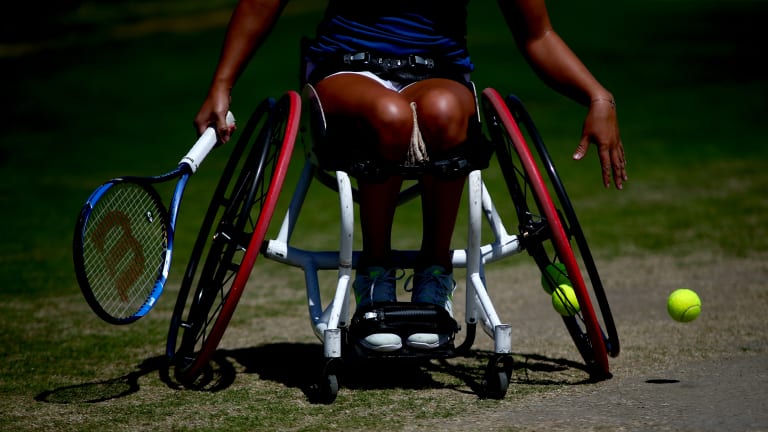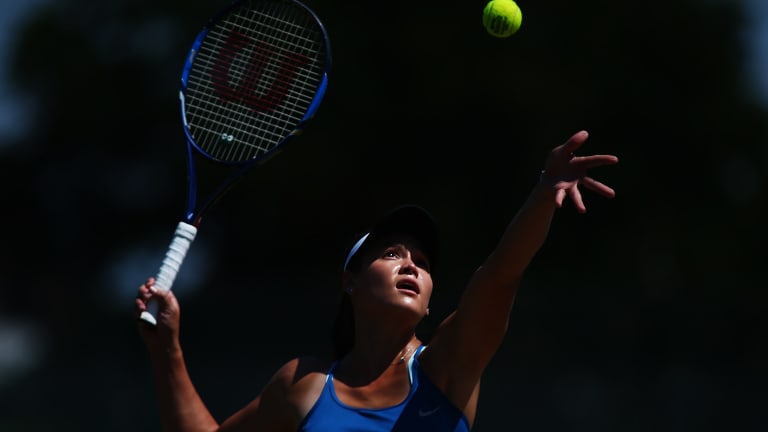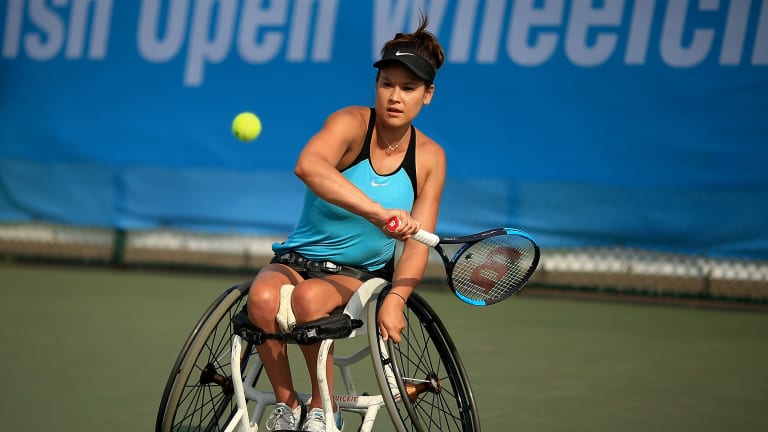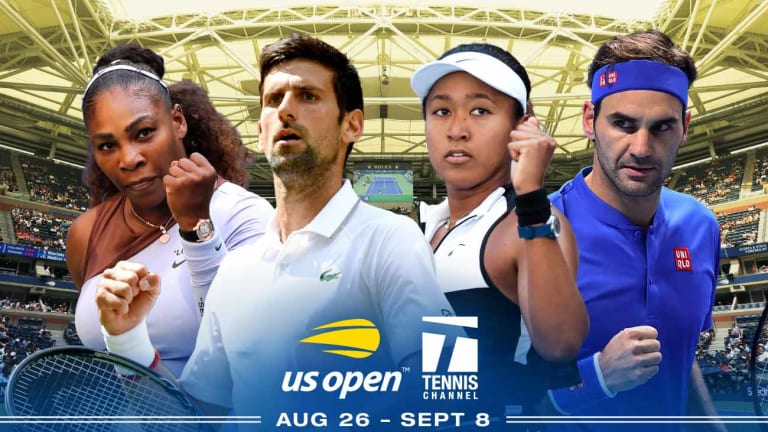Dana Mathewson, wheelchair pro, is more than an inspirational story
By Sep 04, 2019Pop Culture
Olivia Rodrigo, John Cena among celebrities in Wimbledon Royal Box
By Jul 02, 2025Pop Culture
Cate Blanchett cuts a popular figure at Wimbledon, from star-struck Barbora Krejcikova to Daria Kasatkina
By Jul 02, 2025Tennis Channel Interview
Mirra Andreeva bets Martina Navratilova friendship bracelet after Wimbledon advice
By Jul 02, 2025Wimbledon
Wimbledon: No. 1 Aryna Sabalenka avoids upset bug vs. Bouzkova
By Jul 02, 2025Social
Carlos Alcaraz sends well wishes to fan who fell ill during his first-round Wimbledon victory
By Jul 02, 2025Tennis Channel Live
Lindsay Davenport “torn” on Naomi Osaka-Katerina Siniakova Wimbledon second round
By Jul 02, 2025Wimbledon
“Very lonely” Alexander Zverev is searching for answers — “I've never felt this empty before”
By Jul 02, 2025Wimbledon
Wimbledon is burning: 23 seeded players lose in the first round
By Jul 02, 2025Betting Central
Wimbledon Betting Preview: Cameron Norrie vs. Frances Tiafoe
By Jul 02, 2025Dana Mathewson, wheelchair pro, is more than an inspirational story
The top American wheelchair player captured gold in doubles and bronze in singles at last week's Parapan American Games in Peru, and comes to the US Open looking for more riches.
Published Sep 04, 2019
Advertising

Dana Mathewson, wheelchair pro, is more than an inspirational story
© 2017 Getty Images
Advertising

Dana Mathewson, wheelchair pro, is more than an inspirational story
© 2017 Getty Images
Advertising
Advertising

Dana Mathewson, wheelchair pro, is more than an inspirational story
© 2018 Getty Images
Advertising

Dana Mathewson, wheelchair pro, is more than an inspirational story